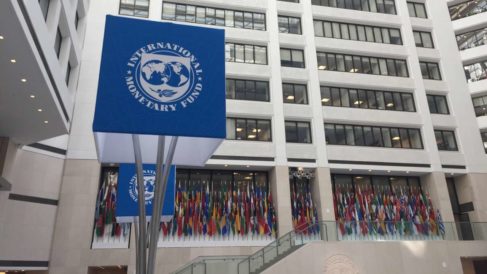The Directors of the action aid country have recently issued a strong call to the International Monetary Fund (IMF) and the World Bank, urging them to change their approach toward African nations. They argue that it’s time to abandon the neo-colonial economic model and austerity policies that have been imposed on African countries for far too long. Instead, they advocate for a shift towards policies that support debt cancellation and progressive tax reforms to empower African nations to build sustainable economies.
During a meeting held in Marrakesh, Morocco, these Country Directors expressed their deep concern over the persistent imposition of a neo-colonial model of economic development by global financial institutions, particularly the IMF and the World Bank. This model, they argue, is rooted in exploitation and extraction of resources from the Global South, which has, in turn, given rise to a cycle of regular debt and economic crises across African nations, action aid.
One of their central grievances is that these economic crises are consistently used as a pretext to enforce strict loan conditions and offer coercive policy advice to African governments. This not only perpetuates economic dependency but also results in severe cuts to public spending, which erodes the capacity of African states to provide essential services such as healthcare and education.
Nonetheless, he pointed out that despite some changes in rhetoric in recent years, the IMF and World Bank continue to uphold the principle of austerity, which, in practice, undermines progress on crucial sectors like health, education, and public services. Furthermore, these institutions limit the capacity of African nations to respond to and adapt to the global climate crisis, action aid.
The statement made by Opa Kapijimpanga, the founder of the African Forum and Network on Debt and Development, is particularly striking. He framed the continuous lending of funds as a means of perpetuating the colonial power dynamics controlled by the IMF.
ActionAid’s research has uncovered that IMF-enforced cuts and freezes to public sector wage bills have consistently blocked the recruitment of urgently needed workers, particularly teachers, nurses, and midwives, with women being disproportionately impacted. These actions have resulted in a deficiency in essential public services that are vital for social and economic development, action aid.
Additionally, they highlighted a significant problem in the international financial architecture, particularly in terms of access to financing. Countries in Africa are subjected to interest rates that are four times higher than those in the United States and eight times higher than those in Germany, due to an unfair global financial system.
In addressing these issues, the Country Directors have underscored the necessity of systemic solutions to the debt crisis that go beyond the existing frameworks. They call for a fundamental reform of the outdated international financial architecture and demand a fair representation of African nations in these institutions. Furthermore, they urge African governments to coordinate regionally to tackle the debt crisis collectively, rather than allowing the blame to fall on individual countries, action aid.
The Directors have also called on Ministers of Finance to build on their previous call for a UN tax convention by advocating for collective action on debt and the establishment of a new debt workout mechanism. They echo the African Caucus’s calls for equitable, rapid, comprehensive debt relief and a transformation of the multilateral debt restructuring frameworks. Importantly, they emphasize the need for these mechanisms to be fully independent of the IMF, preventing governments in debt from being coerced into pursuing austerity policies.
Regarding taxation, the Directors criticize the IMF’s lack of support for bold tax reforms in Africa, despite research indicating that expanding tax-to-GDP ratios is essential for financing the Sustainable Development Goals (SDGs). They argue that regressive taxes such as Value Added Tax (VAT) have been promoted, shifting the burden onto those least able to pay. Instead, they advocate for progressive and gender-responsive tax alternatives that focus on raising revenue from the wealthiest individuals and companies, action aid.
In the context of climate finance, the Directors emphasize the importance of debt cancellation and debt renegotiation as a priority in negotiations at COP28 and other international forums. They argue that climate finance, including funding for loss and damage, should be based on grants and global taxes rather than loans. They also stress the need to halt the funding of destructive practices by banks in the Global North and advocate for funding a sustainable future.
Perhaps one of the most compelling aspects of their message is the Directors’ call on African governments to recognize the fundamentally colonial nature of these financial institutions, which were formed before most African countries gained their independence. They argue that the voting structures within the IMF and World Bank have remained largely unchanged since their inception, giving disproportionate power to former colonizers and perpetuating a world order that doesn’t recognize the voice, dignity, and importance of the African continent.
Conclusion: action aid

The Action Aid Country Directors’ passionate plea for reform is a resounding call to address the deeply entrenched inequalities in the international financial system and to prioritize the welfare and self-determination of African nations. They advocate for a shift away from outdated policies that have only exacerbated economic crises and call for a new approach that empowers African countries to take control of their economic destinies, action aid.










